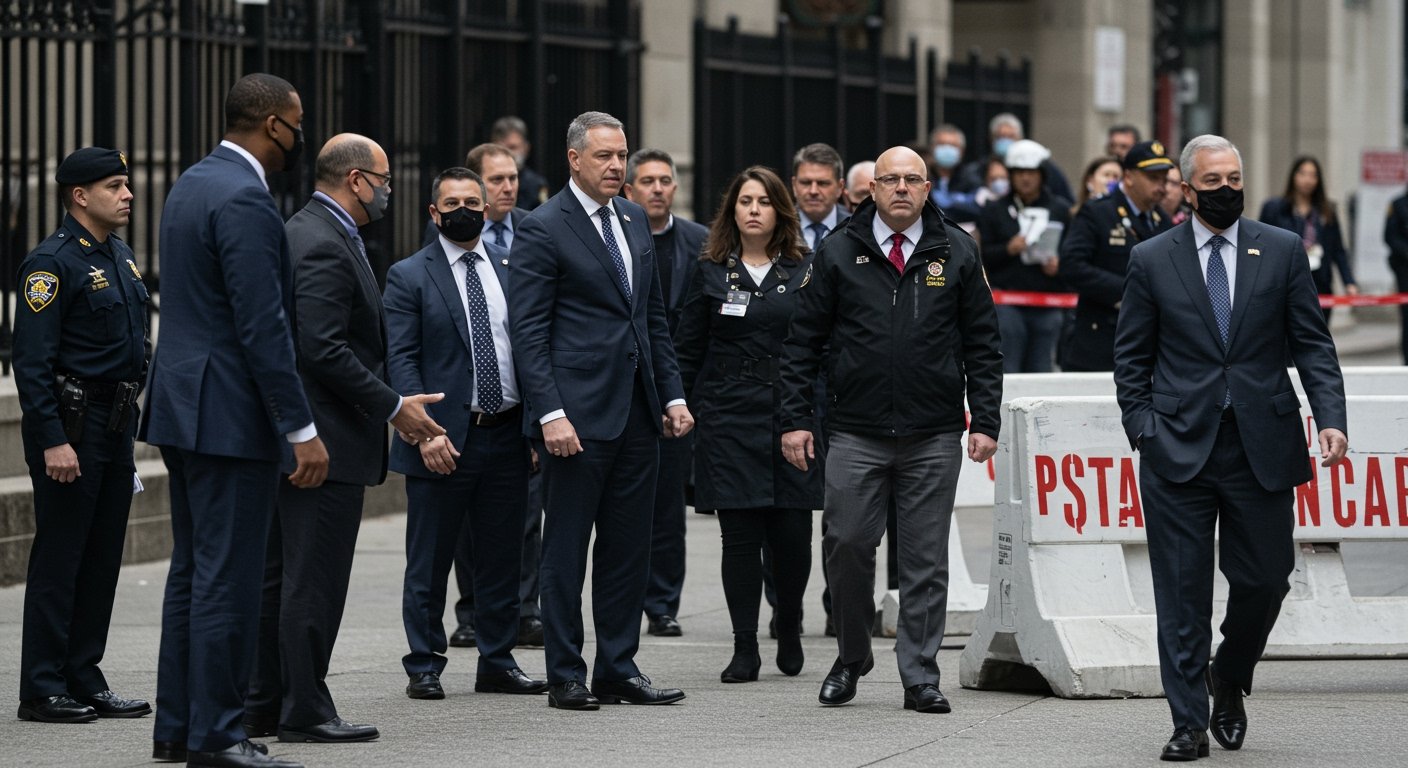NEW YORK – U.S. businesses across key sectors, from farming and cattle ranching to hotels and restaurants, are grappling with significant fear and uncertainty as intensified immigration enforcement actions by Immigration and Customs Enforcement (ICE) continue to escalate. The situation, detailed in an Associated Press article published on June 20, 2025, highlights a growing clash between aggressive government policies and the economic realities faced by employers reliant on foreign-born labor.
Shifting Directives and Increased Pressure
The current climate follows a period of confusing signals from Washington. President Donald Trump had reportedly ordered a temporary pause to these specific ICE raids just last week. However, that brief reprieve was quickly overshadowed by a firm declaration from Assistant Secretary of the Department of Homeland Security, Tricia McLaughlin, who stated on Wednesday that “there will be no safe spaces for industries” found to be harboring certain individuals or undermining immigration enforcement efforts.
The administration’s intent appears clear through actions attributed to White House deputy chief of staff, Stephen Miller. Reports indicate Miller recently oversaw a dramatic increase in ICE’s daily arrest quota. This quota has reportedly jumped from 650 per day during the first five months of Trump’s second term to a significantly higher target of 3,000 per day.
Economic Headwinds and Workforce Impact
This aggressive posture by ICE is manifesting as an increased presence in workplaces, including agents appearing on farms. The direct consequence for businesses can be swift and devastating. One stark example cited is a New Mexico dairy farm that lost 35 of its 55 workers following a raid, representing a substantial and immediate reduction in its labor force.
Such enforcement actions are occurring within a U.S. economy characterized by historically low unemployment, standing at 4.2%. This tight labor market means that businesses often struggle to find domestic workers willing or available to fill demanding roles, particularly in sectors like agriculture and hospitality. The aggressive immigration enforcement thus runs directly counter to many companies’ need for reliable immigrant workers, placing both the businesses and their foreign-born employees in a state of profound stress.
Business Leaders Express Concern
Industry leaders and advocates have voiced strong criticism regarding the impact of the heightened enforcement. Rebecca Shi, CEO of the American Business Immigration Coalition, and Jennie Murray, CEO of the National Immigration Forum, both emphasized the detrimental effects the raids are having on both the workforce and the stability of businesses across the country.
Beyond the immediate disruption of raids, the uncertainty generated by the increased ICE activity has created a chilling effect that extends even to the threat of enforcement. Workers are reportedly staying away from their jobs even based on rumors of potential ICE presence. This was highlighted in Washington state, where such rumors affected the crucial cherry-harvesting season, leading to labor shortages despite no confirmed raid occurring at a specific site.
A Pervasive Climate of Uncertainty
The combination of conflicting signals from the government, drastically increased enforcement targets, visible ICE presence in workplaces, and the pervasive fear among the immigrant workforce is creating a volatile environment for many U.S. businesses. They face the difficult challenge of maintaining operations and planning for the future under a cloud of unpredictability stemming from federal immigration policies. The tension between enforcement priorities and the nation’s labor needs remains a significant point of conflict, leaving many employers and workers navigating a landscape defined by fear and uncertainty.





